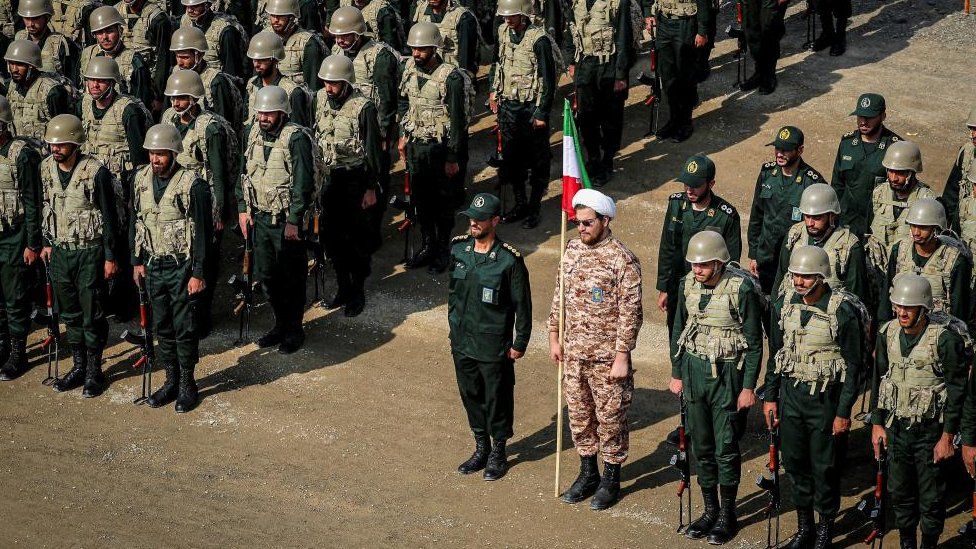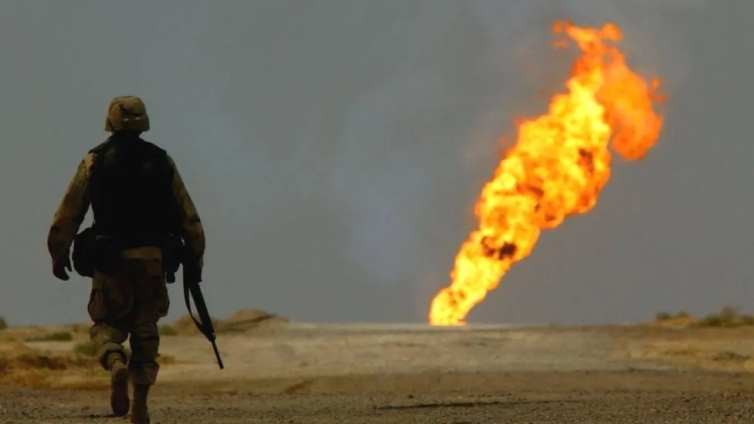President Joe Biden has promised a strong response to Sunday's deadly attack on a US military base in Jordan. But the challenge for the US is to find the right balance between deterrence and escalation.
Fail to act decisively and it risks sending a message of weakness that will only encourage more attacks. Act too forcefully and it could trigger an escalatory response from Iran and its allies.
So what are the options? And how does this work?
The US will already have a number of "on-the-shelf" military options to choose from. These have been drawn up by the US Department of Defense with intelligence input from the CIA and the National Security Agency. They are then presented to the US National Security Council and policymakers, with the president making the final decision and signing off on the chosen course.
Option 1: Strike Iran-allied bases and commanders
This is the most obvious choice and one that has been used in the past.
There are a large number of bases, weapons stores and training depots across Iraq and Syria belonging to the myriad of Iran-backed militias. These militias are trained, equipped and funded by Iran's Revolutionary Guards Corps (IRGC) Quds Force, but not necessarily directed by them.
The US knows who they are and where they are. It could easily carry out more precision-guided missile strikes on these bases - but this has so far failed to deter the militias, who have launched more than 170 attacks on US bases in the region since 7 October.

Responsibility for the attack has been claimed by a group calling itself the Islamic Resistance in Iraq.
This is an umbrella term for a number of Iran-backed militias, some of which, ironically, have previously fought on the same side as the US against their common enemy in the region: Islamic State. They share common aims with Iran, namely to drive the US military from Iraq and Syria and to punish the US for its military support of Israel.
Option 2: Strike Iran
This would be a massive escalation and not something the US would consider lightly.
It is highly unlikely, although not inconceivable, that the US retaliation would include hitting targets on Iranian sovereign territory.
Neither Washington nor Tehran want to get into a full-scale war and both have said so. Iran's response could well include attempting to close the economically vital Strait of Hormuz, through which 20% of the world's oil and gas flow. This would have a devastating effect on world economies, driving up prices and almost certainly damaging President Biden's chances of re-election in November.
One alternative is to go after senior IRGC commanders in Iraq or Syria.
There is a precedent for this, the most notable being four years ago when then-President Donald Trump ordered a drone strike that killed the IRGC Quds Force commander Qassim Suleimani in Baghdad in 2020. But this too would be seen as an escalation, and could well trigger a dangerous response from Tehran.
Option 3: Don't respond
There are those in the US establishment who argue that, given the current tensions in the Middle East, it would be irresponsible for Washington to hit Iranian interests now, especially in an election year.
CENTCOM, the part of the US Department of Defense that covers the Middle East, already has its hands full combatting the Houthis' attacks on shipping in the Red Sea and the Gulf of Aden. It will also be listening to pleas from US allies around the region not to trigger a wider Middle East conflict.
But this view is likely to be outweighed by those who say that the US policy of deterrence to date has failed, and that Washington's reluctance to hit back hard at those who attack its bases has only encouraged them to step up their attacks.
There is a time factor in all of this - some would argue that a radical uptick in US military responses may not be necessary or worthwhile in the long term.
First, attacks by Iran-backed militias pre-date the Israel-Hamas war in Gaza - but they have dramatically increased since 7 October. Once Israel's assault on Gaza concludes then tensions in the region may well subside, although Israel warns this could still be months away.
Secondly, there are loud calls by some in Washington for the US to decrease its military footprint in the Middle East. President Trump, when he was in office, had to be persuaded by his military and intelligence chiefs not to pull out all US forces from Syria, where they were helping Kurdish forces stop ISIS from returning.
There is a strong possibility that should Trump return to the White House in a year's time, then Iran will get its way anyhow, if he decides to draw down the US presence in Iraq and Syria.
Latest Stories
-
Shamima Muslim urges youth to lead Ghana’s renewal at 18Plus4NDC anniversary
7 minutes -
Akufo-Addo condemns post-election violence, blames NDC
14 minutes -
DAMC, Free Food Company, to distribute 10,000 packs of food to street kids
2 hours -
Kwame Boafo Akuffo: Court ruling on re-collation flawed
2 hours -
Samuel Yaw Adusei: The strategist behind NDC’s electoral security in Ashanti region
2 hours -
I’m confident posterity will judge my performance well – Akufo-Addo
2 hours -
Syria’s minorities seek security as country charts new future
3 hours -
Prof. Nana Aba Appiah Amfo re-appointed as Vice-Chancellor of the University of Ghana
3 hours -
German police probe market attack security and warnings
3 hours -
Grief and anger in Magdeburg after Christmas market attack
3 hours -
Baltasar Coin becomes first Ghanaian meme coin to hit DEX Screener at $100K market cap
4 hours -
EC blames re-collation of disputed results on widespread lawlessness by party supporters
4 hours -
Top 20 Ghanaian songs released in 2024
4 hours -
Beating Messi’s Inter Miami to MLS Cup feels amazing – Joseph Paintsil
5 hours -
NDC administration will reverse all ‘last-minute’ gov’t employee promotions – Asiedu Nketiah
5 hours

